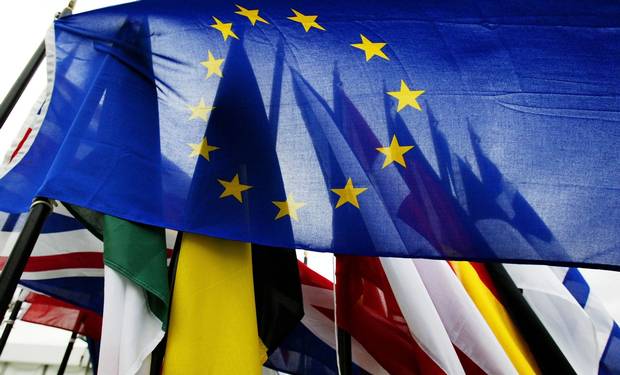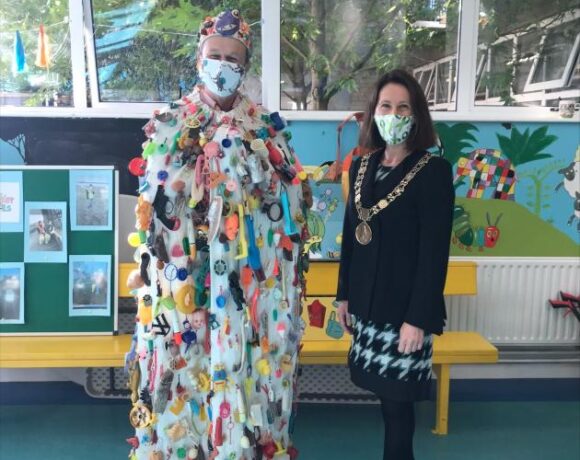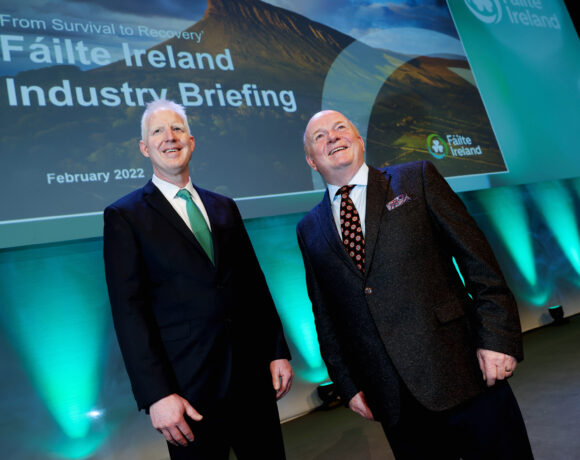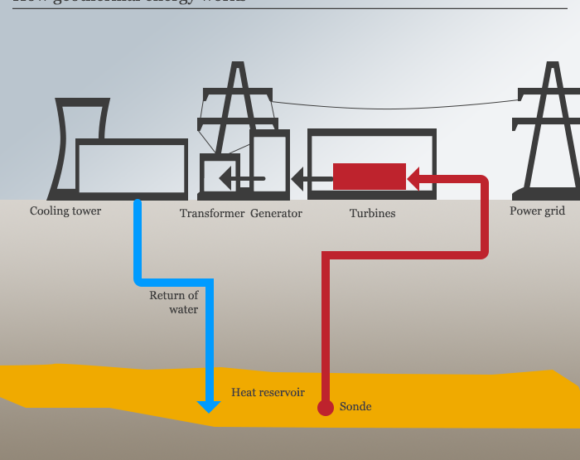Government intensifies preparatory work on Brexit and announces All-Island Civic Dialogue to seek broad based views on all-island implications.
Next Steps to include:
· An all-island Civic Dialogue on Brexit with the initial meeting to be hosted by the Taoiseach and the Minister for Foreign Affairs and Trade on 2 November in Dublin. Invitations will be extended to a broad range of civic society groups, trade unions, business groups and non-governmental organisations as well as representatives of the main political parties on the island (further details at Appendix 1).
· A series of roundtable discussions with interested groups to be held to allow for detailed consideration of Brexit issues arising on a sectoral level.
· Agreement that Budget 2017 will include measures which will support the overall economic response to Brexit.
· Continued engagement with other EU leaders and Governments and the EU institutions, including high-level Government meetings with Michel Barnier, newly appointed as EU Commission’s chief Brexit negotiator, who is expected to visit Dublin shortly.
Following British Prime Minister Theresa May’s weekend announcement that she intends to trigger Article 50 by March 2017, the Government discussed preparations for the negotiations that will then take place, at its meeting today.
After a detailed review of action to date, Government agreed to intensify preparations over the coming weeks, including in particular through closer political and official engagement, including with Northern Ireland, the British Government, and the EU Member States and institutions, and by broadening dialogue with civic society.
Following the Government meeting, the Taoiseach reaffirmed that the priorities of the Government were the economy and trade, the peace process and Northern Ireland; the Common Travel Area and the future of the EU itself. He also said:
“Now that we have clarity from Prime Minister May regarding the timetable, we will intensify our engagement and preparation for the negotiations. Ireland faces unique challenges from Brexit, not least given the all-island issues that arise.
I will continue to engage with Northern Ireland party leaders on the range of issues involved and I welcome the commitment of the Executive parties to working through the issues in the context of the North South Ministerial Council (NSMC). The next NSMC Summit, on 18 November in Armagh, will be hugely significant, when we will have completed our Brexit audit of North/South programmes and will consider how we can best protect the peace process and North-South interests in upcoming negotiations.
I also look forward to a broader dialogue with civic society in the weeks ahead, including on the all-island issues which we will consider at a civic society conference on 2nd November.”
At this morning’s meeting, Government discussed the action taken to date to prepare for Brexit, including in particular on priority concerns for this country: the economy and trade, the peace process and Northern Ireland; the Common Travel Area and the future of the EU itself. Government also approved a range of further actions to ensure that Ireland is fully prepared for the difficult negotiations ahead.
Immediately following the UK referendum result in June the Government strongly affirmed Ireland’s commitment to membership of the EU and of the eurozone, and put in place a Contingency Framework to map and manage the key issues, risks and opportunities that will be most important to Ireland in negotiations.
Ireland’s Brexit concerns have been outlined at the highest political level in Europe through the Taoiseach’s participation in European Council and EU 27 meetings as well as separate bilateral meetings with Chancellor Merkel, President Hollande, Prime Minister May, and the President of the European Council, Donald Tusk. This has been reinforced by contact between the Minister for Foreign Affairs and Trade with all of his 27 EU counterparts, and further engagement by other Ministers.
The Government has also been working closely with the Northern Executive through the North South Ministerial Council. At the Plenary meeting of the Council in July, a set of ten specific actions was agreed to optimise NorthSouth joint planning for Brexit including a full audit of key North-South work programmes.
A wider discussion on Brexit also took place at an extraordinary meeting of the British Irish Council in July which was attended by the Taoiseach and the Minister for Foreign Affairs and Trade, along with the British Government and the devolved administrations of Northern Ireland, Scotland, Wales and the administrations of the UK’s Crown dependencies.
The Government has also put in place range of arrangements to ensure a whole-of- Government response to Brexit, including a new Cabinet Committee which is overseeing the overall Government response to Brexit. In addition to this there will be a bigger role for the Minister and Department of Foreign Affairs and Trade on EU matters and a more focussed EU function in the Department of the Taoiseach as part of an integration of International, EU and Northern Ireland functions there, under a new Second Secretary
General.
Relevant Departments, agencies and overseas missions are also being strengthened to ensure that they are fit for purpose in dealing with Brexit issues.
Over recent months, in anticipation of Article 50 being triggered in early 2017, Departments have been examining all possible models for the future UK relationship with the EU, from continued membership of the single market to a full exit of the customs union.
Government today also approved a series of next steps to ensure continuing effective management of, and engagement on, Brexit issues.
These include:
· An all-island Civic Dialogue on Brexit with the initial meeting to be hosted by the Taoiseach and the Minister for Foreign Affairs and Trade on 2 November in Dublin. Invitations will be extended to a broad range of civic society groups, trade unions, business groups and non-governmental organisations as well as representatives of the main political parties on the island (further details at Appendix 1).
· A series of roundtable discussions with interested groups to be held to allow for detailed consideration of Brexit issues arising on a sectoral level.
· Agreement that Budget 2017 will include measures which will support the overall economic response to Brexit.
· Continued engagement with other EU leaders and Governments and the EU institutions, including high-level Government meetings with Michel Barnier, newly appointed as EU Commission’s chief Brexit negotiator, who is expected to visit Dublin shortly.
· Continued detailed engagement between senior government officials and their counterparts in the UK, in the context of the meeting of Secretaries General and Permanent Secretaries in London this week, and with Northern Ireland Departments in advance of the next Summit of the North South Ministerial Council.
The Government also noted that there will be continued engagement with parliamentarians
throughout these islands through the work of the:
· North South Inter-Parliamentary Association;
· the British Irish Parliamentary Assembly and the
· Oireachtas Joint Committee on the Implementation of the Good Friday Agreement.
Appendix 1
All-Island Civic Dialogue on Brexit
The Government has agreed that there will be an all-island Civic Dialogue on Brexit with the initial meeting to be hosted by the Taoiseach and the Minister for Foreign Affairs and Trade on 2 November in Dublin. This is to allow for the widest possible conversation on the implications of the UK referendum result for Ireland, North and South and for North/South relations. The all-day Conference will take place in Dublin on Wednesday, 2 November.
This event will provide an opportunity to hear the voices of the people affected by the vote, both directly and through their representative groups. It will also provide an opportunity to map the challenges presented by Brexit and how they might impact on different elements of society and the economy on an all-island basis.
The main output will be a report and recommendations which will be used to help inform the Government’s position on issues related to the UK’s exit negotiations.
Participation
Attendance at the Conference will be at the invitation of the Taoiseach and the Minister for Foreign Affairs and Trade. Organisations which will be invited to nominate a maximum of two representatives include:
· Business, employer and trade union organisations, farming organisations, community and voluntary NGOs, North and South
· Organisations who participate in the current EU/UK stakeholder group, such as the British Irish Chamber, IIEA, European Movement Ireland
· Local Authorities in border regions
· Key Government agencies, particularly those with a North/South dimension
· Academic institutions North and South such as Centre for Cross Border Studies and the Royal Irish Academy as well as universities and Higher Education Institutions.
Representatives of the main political parties, North and South, will also be invited.













